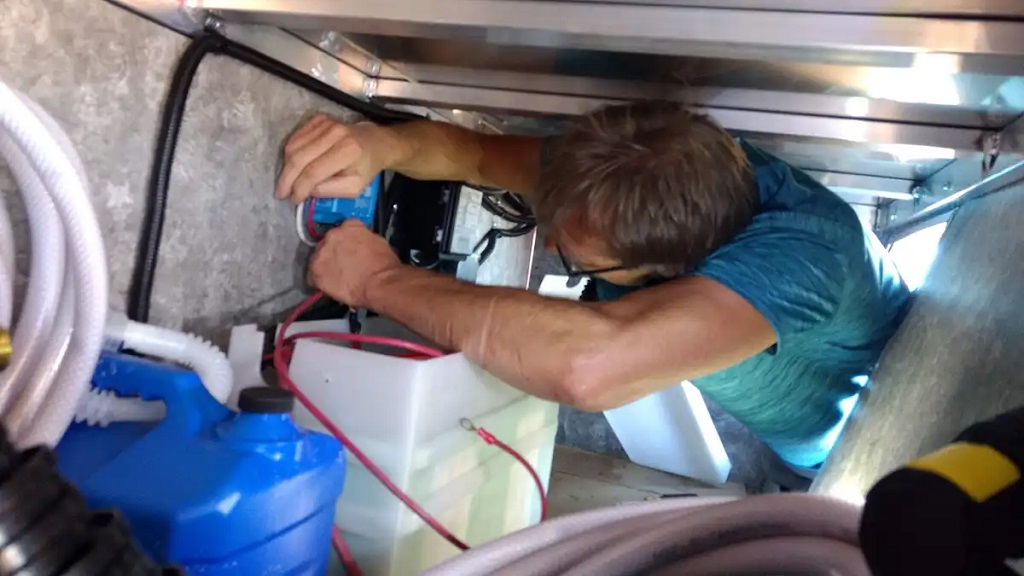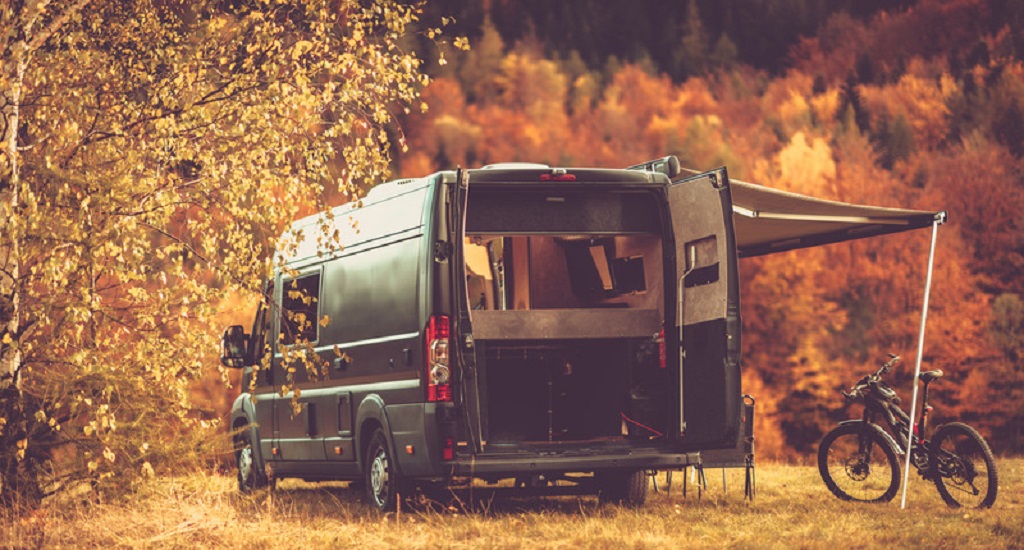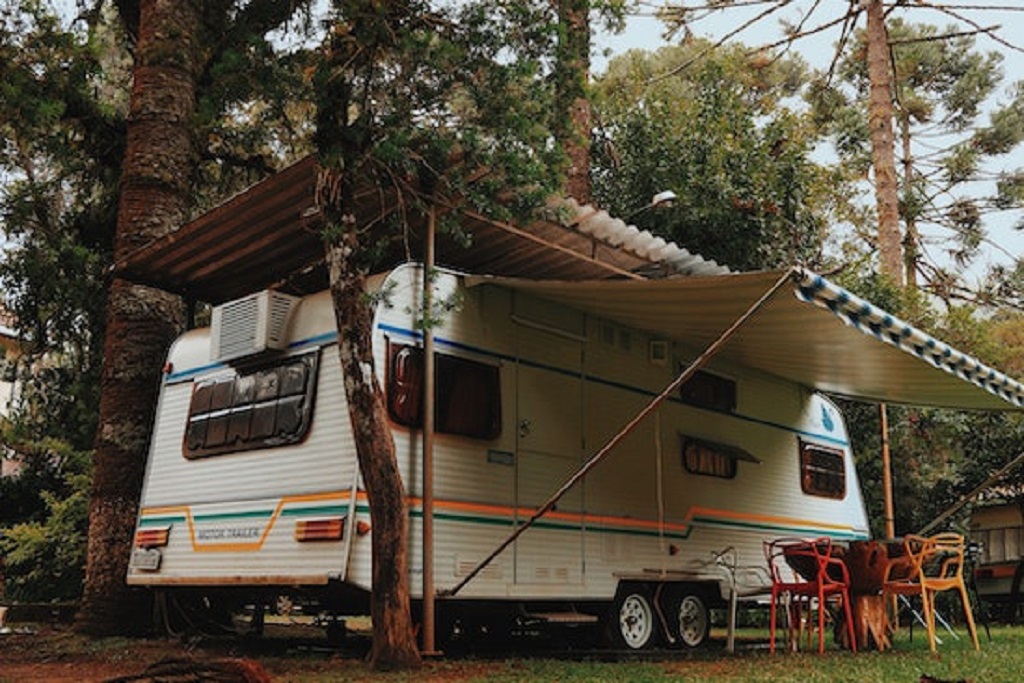
13 Feb How Long Will RV Battery Last Boondocking During Summer Camping?
Boondocking, or dry camping without hookups, is a popular way for RVers to get off the grid and enjoy nature. However, relying solely on your RV’s battery means you need to be strategic about power usage to avoid draining it too quickly. Battery life when boondocking depends on several factors, especially the demands from appliances and devices, battery capacity, and outside temperature.
Planning is crucial to maximize battery life. With some preparation and energy conservation, you can comfortably boondock for days or even weeks during the summer with just your house battery bank. Here’s an in-depth look at how long will rv battery last boondocking while off-grid camping in summer conditions.
Key Factors That Determine RV Battery Life While Boondocking

Several important factors come into play when estimating how long will rv battery last boondocking without hookups:
RV Battery Capacity
The total capacity of your battery bank, measured in amp-hours (Ah), determines how much-stored energy you have available. For example, a 100 Ah battery when fully charged can deliver 100 amps for 1 hour, 50 amps for 2 hours, or other combinations. Higher capacity equals more usable power.
Power Draw From Appliances and Devices
The amount of power your appliances, lights, and electronics use impacts battery drain. Running energy-hungry devices like air conditioners, induction cooktops, and electric heaters will deplete a battery much faster than using LP gas appliances, and LED lights, avoiding unnecessary loads.
Outside Temperature
Hot summer temperatures increase the power demands from air conditioning to keep the interior cool. Running an AC may use 50+ amps per hour. The warmer it is outside, the harder your A/C works and the more juice it pulls.
Battery Efficiency and Age
As batteries age, they lose capacity and efficiency. Older, worn-out batteries won’t last nearly as long as new ones with the same amp-hour rating. Keeping batteries charged up helps prolong their useful lifespan.
Solar Charging
Solar panels can refill your batteries during the day to help offset power use. But solar output decreases in hot weather. Batteries recharge slower when it’s over 85°F outside.
Estimating RV Battery Runtime in Summer Conditions
With average use, a properly sized RV battery bank should be able to last 3-5 days on a full charge boondocking in the summer. Here are some benchmarks to use as a general guideline for runtime expectations:
- 100 Ah battery bank – Up to 2 days of moderate usage with some recharging from solar, if equipped.
- 200 Ah battery bank – Approximately 3-4 days is common for careful energy use.
- 300 Ah battery bank – Can comfortably last 4-5+ days for an energy-efficient RV.
- 400 Ah battery bank – Over a week of camping is possible if conservatively using a robust battery capacity.
However, we need to dive deeper to get a more customized estimate based on your actual power demands and consumption habits…
Calculating Your RV’s Battery Runtime
Figuring battery life while boondocking requires some quick math using these three key variables:
- Your RV battery’s capacity in amp-hours
- Average hourly amp draw from appliances and devices
- Efficiency losses from age and temperature
Here is the basic formula to estimate hours of usable battery life:
Battery Capacity (amp-hours) ÷ Average Amp Draw per Hour x 0.85 efficiency factor
The 0.85-factor accounts for roughly 15% capacity loss from system inefficiency and natural battery discharge over time.
For example, let’s assume:
- 400 Ah battery bank
- Estimated 100 amp draw per hour average usage
- 15% efficiency loss
Using the formula:
- 400 Ah / 100 amps x 0.85 = 3.4 days (81 hours) of estimated battery life.
This gives you a starting point to work from. Now let’s explore how different conditions and usage can impact results…
Key Factors That Drain RV Batteries Faster in Hot Weather
Several conditions unique to summer camping can put increased strain on your RV battery bank and runtime:
Air Conditioning Use
A/C units are notorious energy hogs, especially in hot weather. Running a 15,000 BTU RV AC may pull 15-20+ amps on average. Using AC all day and night will cut battery life in half or more. Minimize A/C to maximize battery capacity.
High Heat = Fast Self-Discharge
Battery capacity diminishes quickly in hot temperatures. Some loss over time is unavoidable. But extreme heat accelerates self-discharge. Keeping batteries as cool as possible will help optimize runtime.
Fans and Ventilation
Fans are an efficient way to circulate air. But having multiple fans running for airflow can add 10-15 amps or more to your hourly usage, draining batteries faster.
No Solar Recharge
Cloudy, stormy weather may block the sun from recharging your batteries via solar panels. Without solar recharge each day, your nightly battery drain will continually add up.
Weekend Warrior Usage
Heavier usage on weekends like bright interior lighting, hot showers, cooking appliances, TV entertainment, etc. can deplete 50% or more of your battery capacity in just 1-2 days.
High-Draw Electronics
Gaming systems, satellite receivers, instant pots, and other electronics gobble steady power compared to efficient LED lights and propane appliances. Monitor their usage closely.
Tips to Conserve Battery Power in Hot Weather
Getting 4-5+ days from your RV battery while boondocking in summer is very achievable with smart power management:
- Minimize AC runtime – Only use A/C during peak heat. Opt for fans, ventilation, and shade instead.
- Cook with propane – Using your propane stove and oven preserves battery capacity.
- Light it up efficiently – Swap out any incandescent bulbs for power-sipping LEDs.
- Ration hot showers – Limit showers to 5 minutes max. Heat water off-grid using propane.
- Fill water tanks – Carry extra fresh water when boondocking to avoid generator use for pumping.
- Disconnect parasitic loads – Turn off anything that needlessly draws power when not in use like water heaters.
- Use battery power judiciously – Be selective in what you choose to run. Prioritize necessity over comfort and convenience.
- Take advantage of solar-angle panels for maximum sun exposure to refill batteries during daytime hours.
- Use a power management app – Actively monitor amp draw and battery charge levels to avoid over-discharge.
- Pre-cool the RV – Run A/C before bed to chill the interior so you don’t need to run it as long overnight.
Following these tips will help you reduce average hourly power consumption and make your batteries go much further.
Other Boondocking Battery Tips

Here are some additional pointers for getting the most from your RV house batteries while dry camping in the summertime:
- Check charge levels each morning and evening to monitor drawdown. Recharge before dropping below 50%.
- Inspect batteries before each trip for damage and corrosion. Clean terminals ensure optimal performance.
- Consider installing solar panels to offset battery drain from lights, fans, and small appliances.
- Use a charge controller to prevent overcharging and undercharging. Keep batteries in a sweet-spot voltage range.
- Allow Li-ion and AGM batteries to cool down before rapid recharging. Heat degrades battery life over time.
- Park in shaded spots to keep the interior cooler and reduce AC runtime. Use reflectors in windows to divert the sun.
- Do a trial run in your driveway to identify power hogs. Measure typical hourly usage for your RV setup.
- Upgrade to lithium batteries for maximum capacity in hot weather. Lead-acid batteries lose efficiency above 85°F.
- Check your owner’s manual for battery break-in procedures to follow. Proper initial conditioning improves lifespan.
- Inspect water levels in flooded lead-acid batteries regularly. Top off with distilled water as needed.
- Limit discharging lead-acid batteries below 50%. Deep cycling shortens lifespan compared to partial discharges.
Common Questions
How long will my RV battery last in 100°F weather?
At 100°F ambient temperature with moderate usage, expect 40-50% less runtime from your RV battery compared to cooler conditions. Limit AC use and unnecessary loads as much as possible.
What is the best RV battery for hot weather boondocking?
Lithium batteries perform better than lead-acid at hot temperatures above 85°F. Look for lithium iron phosphate (LiFePO4) batteries with high cycle ratings. Size your bank for at least 200-300 amp-hours for sufficient capacity.
Should I get a residential refrigerator for boondocking?
Yes, an efficient refrigerator designed for solar and inverter power will reduce the load on your RV battery, especially in summer heat. Opt for a 12V DC compressor model that draws under 3 amps per hour. Avoid AC refrigerators.
How can I recharge my battery while driving?
Use a multi-stage charger plugged into your truck’s 7-way outlet while driving. This allows the alternator to charge your house battery. A solar controller with pass-through charging works too. Drive at least 30-60 minutes daily.
What solar wattage is needed to run an RV air conditioner?
To run a 15,000 BTU RV air conditioner on solar power requires around 3000 watts of solar panels on the roof. Plus you’ll need at least 600-800 amp-hours of battery capacity for limited use. This setup is expensive but allows true off-grid AC.
Should I disconnect my RV battery when not using the camper?
When storing your RV, it’s best to disconnect the battery bank to prevent parasitic loads from draining it. However, full disconnection isn’t needed after each short camping trip. Just minimize drawdowns below 50% between trips.
Conclusion
The length of your RV battery will run while boondocking in hot summer conditions depends on several variables, especially your power demands and energy conservation efforts. The Best Travel Trailers not only offer exceptional comfort and convenience on the road, but with proper planning, a suitable battery capacity, and smart usage, you can comfortably dry camp off-grid for 4-5 days or more.
Minimize A/C use, utilize solar charging, choose efficient appliances, monitor amp draw, and limit demand for the best battery life possible while enjoying summer camping away from shore power.

